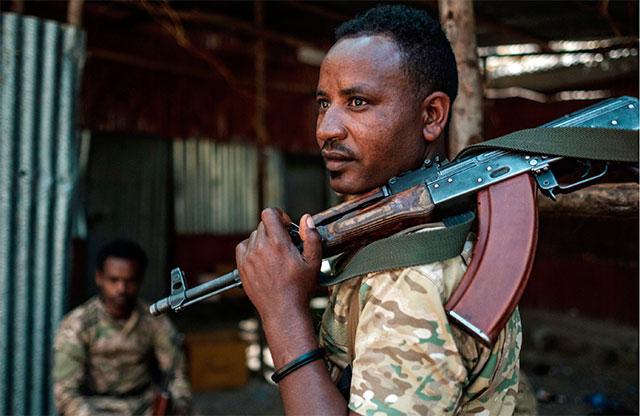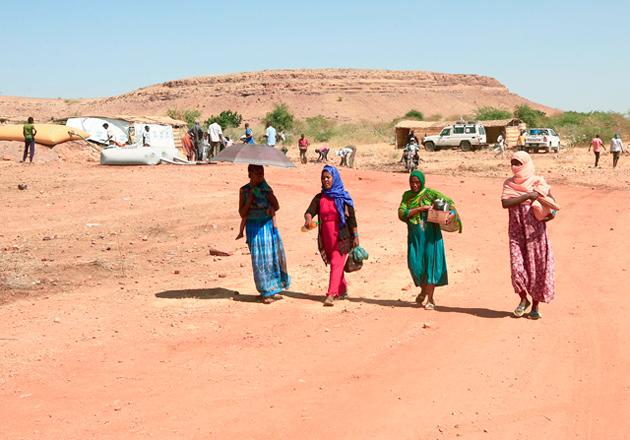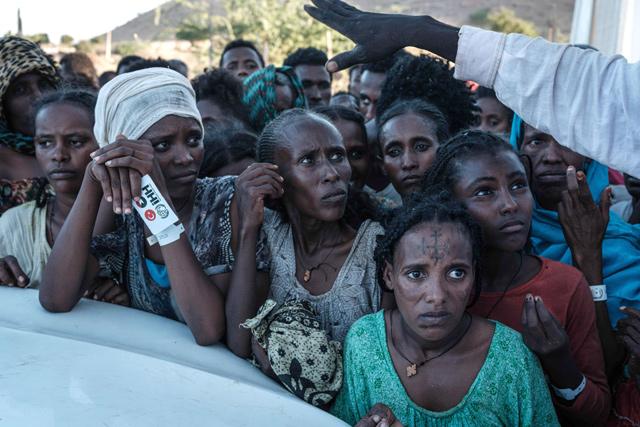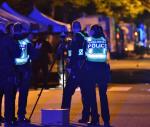You are here
Ethiopia PM orders 'final' offensive against dissident Tigray leaders
By AFP - Nov 26,2020 - Last updated at Nov 26,2020

A member of the Amhara special forces looks on as he holds his rifle at the 5th Battalion of the Northern Command of the Ethiopian army in Dansha, Ethiopia, on Wednesday (AFP photo)
AADDIS ABABA — Prime Minister Abiy Ahmed on Thursday ordered Ethiopia's army to launch a "final" offensive against Tigray's dissident leaders in their regional capital Mekele, saying the deadline for their surrender had expired.
Abiy, the winner of last year's Nobel Peace Prize, late Sunday gave the Tigray People's Liberation Front (TPLF) 72 hours to lay down their arms.
The ultimatum was rejected by the leaders of the region, whose forces have been fighting federal troops in the country's north for three weeks. Violence has claimed hundreds of lives and displaced more than 40,000.
Ethiopia's army — which in recent days said it was advancing on Mekele with tanks — had been directed "to conclude the third and final phase" against the TPLF, Abiy said.
"In this final phase, great care will be given to protect innocent civilians from harm. All efforts will be made to ensure that the city of Mekele, which was built through the hard work of our people, will not be severely damaged," Abiy promised.
He said "thousands" of TPLF militia and special forces had surrendered to federal forces before the deadline lapsed.
It was not immediately clear how close the army was to the city. A communications blackout in Tigray and restrictions on reporting have made verifying claims from both sides difficult.
'Carefully devised' strategy
Diplomats briefed on the fighting told AFP Wednesday that federal forces were at least 30 kilometres from Mekele to the north and the south.
The threatened assault and fears for Mekele's half a million inhabitants accelerated diplomatic efforts this week to mediate, with the UN Security Council holding its first meeting on the crisis on Tuesday.
A team of special envoys dispatched by the African Union (AU) to try to mediate between the warring parties arrived in Addis Ababa late Wednesday, said a spokesperson for the 55-member bloc.
UN Secretary General Antonio Guterres urged “the leaders of Ethiopia to do everything possible to protect civilians” as the US, EU and other international powers encouraged mediation through the AU, headquartered in Addis Ababa.
Rights groups have warned bombarding Mekele could constitute a war crime.
“Despite the Ethiopian military’s warnings to residents, warnings alone do not absolve the government of its obligation to take constant care to protect civilians, particularly when using airpower and heavy weaponry” in congested urban areas, Human Rights Watch said on Thursday.
Abiy stressed that Ethiopia’s defence forces had “carefully devised” a strategy to defeat the TPLF in Mekele without harming civilians or public property.
“We call on the people of Mekele and its environs to disarm, stay at home and stay away from military targets” and assist by handing over TPLF elements in their midst, Abiy said.
Resistance
Abiy ordered troops into Tigray on November 4 following alleged attacks by TPLF forces on federal military camps in the region.
He has resisted appeals for talks. His government signalled it would meet the AU envoys “as a matter of respect” but flatly refused to negotiate.
As international pressure mounted this week, Abiy issued a strongly-worded statement rejecting outside “interference” in what he labelled an internal “law enforcement” operation.
“We therefore respectfully urge the international community to refrain from any unwelcome and unlawful acts of interference and respect the fundamental principles of non-intervention under international law,” he said.
Since the fighting began, rockets have fallen on the Eritrean capital Asmara and Ethiopian cities outside Tigray, spurring fears the conflict could destabilise the wider Horn of Africa region.
Hundreds have reportedly been killed, although an accurate figure is not known. Ethiopia’s rights watchdog this week said at least 600 civilians were massacred in the Tigrayan town of Mai-Kadra alone.
The UN, in its latest crisis report, said shortages of cash and fuel were “very critical” in Tigray and humanitarians were struggling to meet needs. Abiy committed Thursday to opening a humanitarian access route into Tigray and working with the UN and other aid agencies to help those in need.
More than 40,000 people meanwhile have crossed into eastern Sudan, where the UN says a “full-blown humanitarian crisis is unfolding” in one of the country’s poorest regions.
“The numbers are way above the state’s capabilities,” Soliman Ali, the governor of the border state of Gedaref, told AFP. “And a rise in numbers will put further pressure not only on the state but all of Sudan.”
The TPLF led the overthrow of Mengistu Hailemaria, leader of Ethiopia’s military Derg regime, in 1991 and dominated the country’s politics until Abiy became prime minister in 2018.
Since then, TPLF leaders have complained of being sidelined by Abiy and blamed for the country’s woes, and tensions have flared between the regional leadership and the federal government in Addis Ababa.
Related Articles
ADDIS ABABA — Both sides in Ethiopia's raging internal conflict claimed military successes on Wednesday, creating a muddied picture of
ADDIS ABABA — Ethiopia has granted the United Nations full access to deliver aid to the northern region of Tigray, following weeks of lobbyi
ADDIS ABABA — Rockets launched from Ethiopia's northern Tigray region targeted the capital of Eritrea several hours after Ethiopian Prime Mi


















